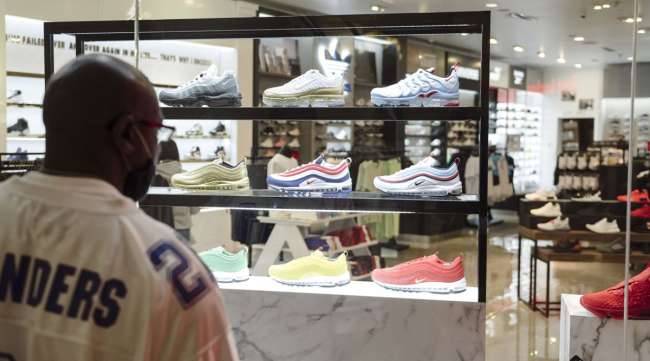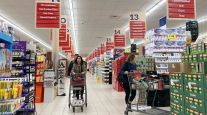Bloomberg News
US Consumer Confidence Fell in July as Expectations Slumped

[Ensure you have all the info you need in these unprecedented times. Subscribe now.]
U.S. consumer confidence declined in July by more than forecast as a pickup in COVID-19 cases rattled Americans’ sentiment about prospects for the economy and the job market.
The Conference Board’s index decreased to 92.6 from a revised 98.3, according to a report issued July 28. The median estimate of economists surveyed by Bloomberg called for a reading of 95 in July. The group’s gauge of expectations fell by the most since March, while household sentiment about current conditions climbed.
The latest reading of sentiment adds to evidence that the pace of economic recovery from the pandemic is cooling as the virus interrupts reopenings in several states. Less than a third of respondents in the survey said they expected better business conditions and more jobs in the next six months, evidenced by an elevated number of Americans collecting jobless benefits.
“Looking ahead, consumers have grown less optimistic about the short-term outlook for the economy and labor market and remain subdued about their financial prospects,” Lynn Franco, senior director of economic indicators at the Conference Board, said in a statement. “Such uncertainty about the short-term future does not bode well for the recovery, nor for consumer spending.”
Confidence deteriorated in California, Texas, Florida and Michigan, the report showed, as the virus spread. Households may also be growing anxious about whether lawmakers will extend benefits such as the extra $600 in weekly unemployment payments that are set to expire in coming days.
Stocks remained lower as traders assessed the latest quarterly earnings.
The subindex of expectations, an indication of short-term outlook on the economy, dropped 14.6 points to 91.5, while attitudes about current conditions climbed to a four-month high of 94.2.
Almost 32% of consumers said they expect better economic conditions six months from now, down from 42.4% a month earlier. Less than 31% see more job availability, compared with 38.4% in June. Income expectations, however, remained relatively stable.
Consumers’ plans to purchases autos and appliances decreased in July, while the share expecting to buy a house rose to a one-year high.
The Conference Board’s figures mirror the University of Michigan’s gauge of sentiment, issued July 17, that also showed households anticipate more economic harm to come from the pandemic.
Want more news? Listen to today's daily briefing:
Subscribe: Apple Podcasts | Spotify | Amazon Alexa | Google Assistant | More




